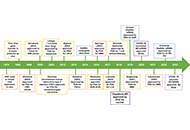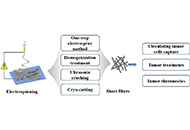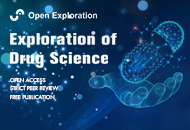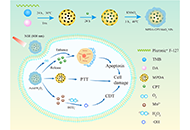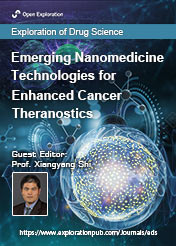
Emerging Nanomedicine Technologies for Enhanced Cancer Theranostics
Guest Editor
Prof. Xiangyang Shi E-Mail
Professor of Biomedical Engineering, College of Chemistry, Chemical Engineering and Biotechnology, Donghua University, Shanghai, China
Research Keywords: dendrimers; polymer nanogels; cancer nanomedicine; drug/gene delivery; theranostics
About the Special lssue
Cancer theranostics have been demonstrated as the advanced platforms that can diagnose cancer at early stages and initiate subsequent therapy to impove the survival rate of patients. With the development of nanotechnologies, multifunctional nanoplatforms have shown a good application prospect in enhanced cancer theranostics. Through the ingenious design of nanoplatforms, various imaging and therapeutic agents can be physically loaded or chemically conjugated onto the platforms to optimally exert their functionalities of theranostics. Nanomedicines are contimuously seeking contribution from the therapeutic and diagnostic agents at the nanoscale through creative leveraging of their mechanical, electrical, optical, magnetic, and biological properties. This special issue entitled “Emerging nanomedicine technologies for enhanced cancer theranostics” brings together some of the world's foremost experts to discuss the current key developments in the area of emerging nanomedicine technologies in cancer nanotheranotics, including but not limited to strategic design of nanomedicines to tackcle multi-drug resistance, tumor targeting delivery, modulation of tumor microenvironment, combination therapy, precision imaging, inhibition of cancer metastasis and recurrence, and modulation of immune cells.
Keywords: drug delivery systems; gene delivery; molecular imaging; cancer theranostics; tumor microenvironment
Published Articles
